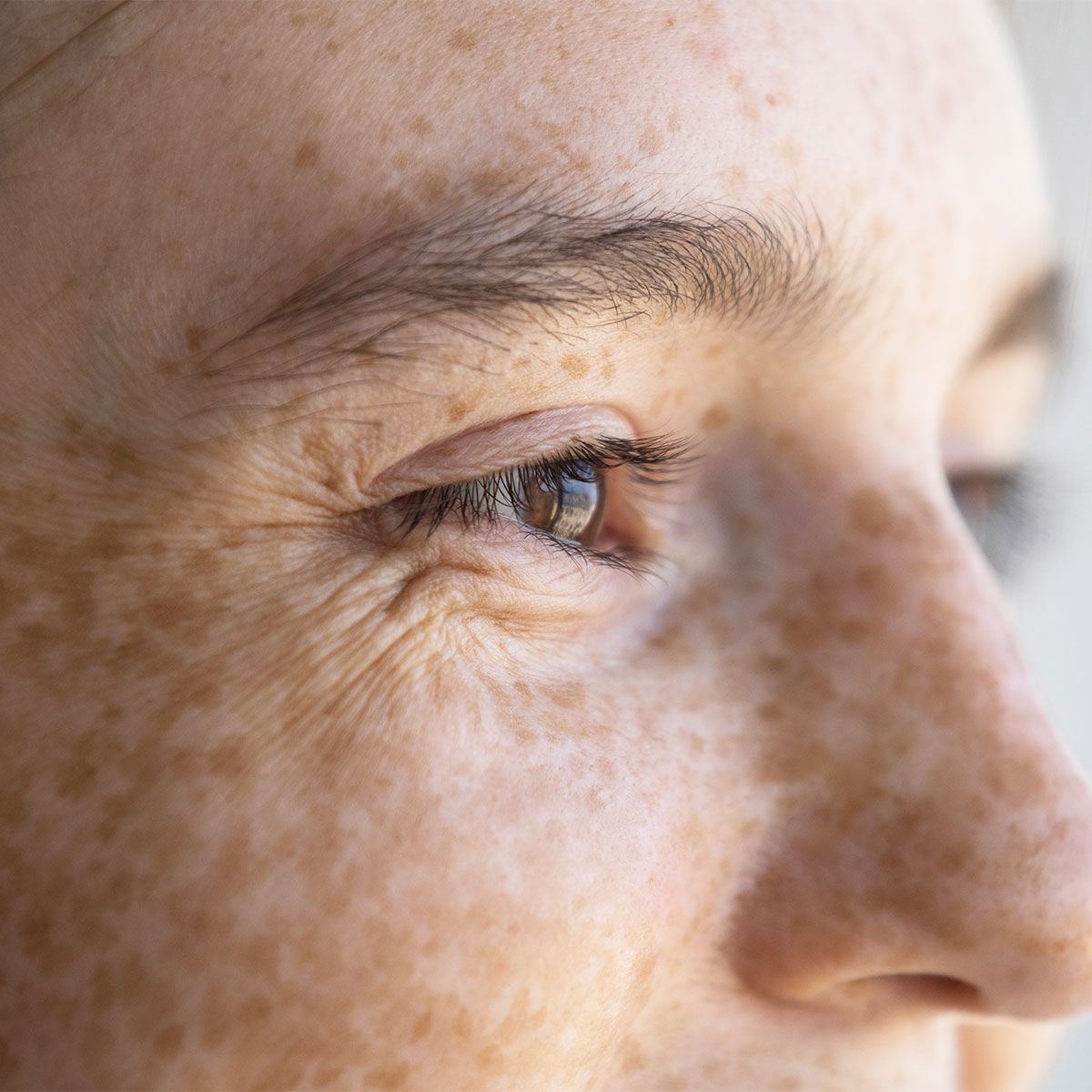Of all of the frustrating skin problems you can deal with, discoloration and uneven skin tone is one of the more elusive issues. Unlike pimples, which have a start date and an end date where you can see the zit beginning to heal, discoloration can come out of nowhere. It can stick around for a long while (sometimes for years). And topical treatments don’t always seem to respond to it. “There are many reasons to develop brown spots on the skin,” said Dr. Hyemin Pomerantz, a board-certified dermatologist at Viva Skin Dermatology and Aesthetic. “Treatments are tailored to what the cause of discoloration is.”
Here, Dr. Pomerantz outlines two main causes of discoloration and recommended treatments for each.
Acne Flare-Ups
“One of the most common conditions I see in my practice is discoloration on the face after acne flare ups,” Dr. Pomerantz said. “These brown spots can go away over time, but it can take as long as a few months. They tend to linger longer in people with darker skin tones. The most important thing about treating these is actually preventing new acne lesions by staying on a good acne treatment regimen, because new acne spots will lead to discoloration even if you had old discoloration treated.”
Dr. Pomerantz said she reaches out for treatments that can treat both acne and discoloration. “A prescription retinoid that is used to prevent acne also acts to brighten the discoloration quicker as well,” Dr. Pomerantz said. “I love a microneedling RF (radiofrequency) device for patients with discoloration associated with acne scars.”
Melasma
Another condition Dr. Pomerantz says she sees commonly is melasma. “This is brown discoloration that can commonly happen over eyebrows, cheek bones, and upper lip,” Dr. Pomerantz said. “It can be triggered by hormones during pregnancy or combined oral contraceptives. If it’s triggered by a hormone-based medication, I’d like to make sure that the patient can come off of the medication safely before pursuing other treatments. There is no treatment to date that is going to make melasma go away. The focus is to fade it enough so it can be less noticeable. Depending on patients’ preferences, we decide combinations of topical medication, oral medication, and microneedling RF or q-switched laser treatment. Melasma can become darker if a laser or device treatment is too strong, so this has to be performed very carefully.”
Make sure you do your research and are choosing board-certified dermatologists who have lots of experience with laser treatments before booking an appointment.
Prevention Is Key
It’s always easier to prevent a skincare issue than it is to treat one. And when it comes to brown spots, the skin can get darker with sun exposure so year-round sun protection is a must.
“Avoiding the sun, hats, sunscreen, long-sleeve shirts and pants are recommended,” Dr. Pomerantz said. “One interesting thing about sun screen is that SPF number indicates how well the sunscreen blocks UVB light. Sun also emits UVA light, which contributes to wrinkles and discoloration on the skin more so than UVB. The FDA doesn’t require the manufacturers to report UVA coverage.”
One sunscreen to try: Mesoestetic Mesoprotech Melan 130 + Pigment Control, which has a UVA-PF of 67 according to the brand.


























